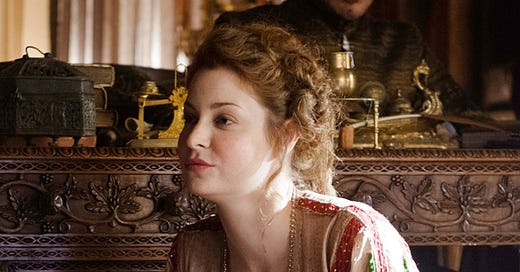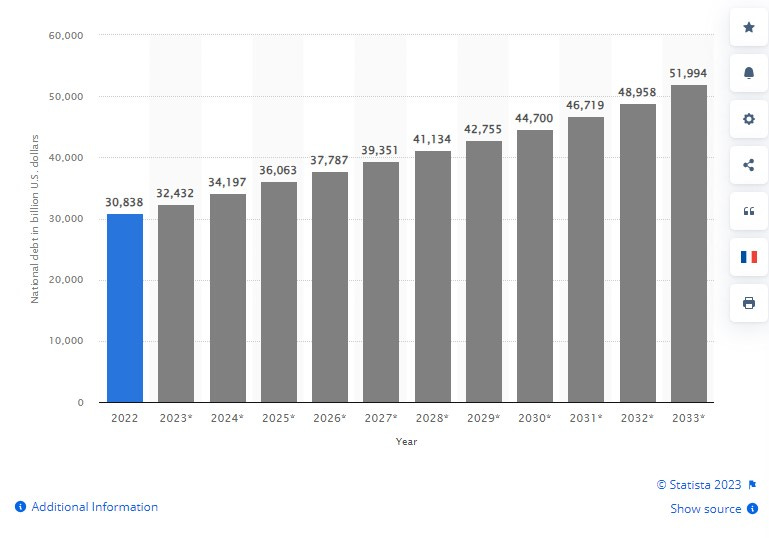Game of Thrones and Our Out-of-Control Government Spending
Game of Thrones might be a fictional story, but it holds a very real lesson: Winter will come eventually. It always does.
A few years ago I noted that cash-strapped lawmakers in Illinois had resorted to taxing lap dances to help plug budget holes.
It was almost too hard to believe. Surely this was a clever bit of satire penned by someone at The Babylon Bee or The Onion.
Nope. The strip joint was hit with an “amusement tax.”
Taxing Human Nature
Part of the reason I thought the story was satire is that it reminded me of a line from George R.R. Martin’s book A Game of Thrones. In the series, we see at various times the rulers of King’s Landing (the capital of Westeros) attempt to deny or profit from people’s lustful habits.
Early in the story, King Robert’s brother, Lord Renly, mentions how his brother Stannis once proposed regulating prostitution, which Renly said prompted the king to jest that perhaps Stannis would like to regulate “eating, sh*tting, and breathing while he was at it.”
To Robert, a man of great appetite, the idea of banning or taxing basic human functions is laughable and absurd.
But before we begin praising King Robert for his laissez-faire economics and damning Tyrion for a statist, we should explore another layer to the story. There’s a reason Tyrion Lannister has resorted to passing a tax the people of King’s Landing despise.
Fiscal Irresponsibility
The kingdom is broke. In fact, Westeros is worse than broke. And this is largely because of Robert, we learn.
Eddard Stark, the patriarch of House Stark (the "good guys" in Game of Thrones, if there can be said to be any) learns the reality of the Crown’s finances after arriving in King’s Landing. In a meeting with the king’s council, Stark questions whether the kingdom can afford a lavish tournament the king had ordered to honor Stark, who had recently been appointed Hand of the King (basically the king’s chief administrator).
One member of the council, the Grand Maester Pycelle, asks if the treasury can bear the expense. The master of coin, the devious Littlefinger, offers a telling response:
“What treasury is that?” Littlefinger replied with a twist of this mouth. “Spare me the foolishness, Maester. You know as well as I that the treasury has been empty for years. I shall have to borrow the money. No doubt the Lannisters will be accommodating. We owe Lord Tywin three million dragons at present, what matter another hundred thousand?”
Stark is stunned. “Are you claiming that the Crown is three million gold pieces in debt?”
Littlefinger responds:
The Crown is more than six million gold pieces in debt, Lord Stark. The Lannisters are the biggest part of it, but we have also borrowed from Lord Tyrell, the Iron Bank of Braavos, and several Tyroshi trading cartels. Of late I’ve had to turn to the Faith. The High Septon haggles worse than a Dornish fishmonger.
Stark is shocked, noting the king’s predecessor, Aerys Targaryen, “had left a treasury flowing with gold.” He refuses to believe the king’s advisors would allow “Robert to beggar the realm.”
But beggar the realm the king has. Robert, we learn, likes to drink, eat, whore, and hit things. He cares little for “counting coppers.”
There’s a lesson here. Accounting gimmicks work for a time, but the bill eventually comes due.
The United States government is currently $32 trillion in debt, and over the next decade the government (i.e. taxpayers) are expected to pay $10.5 trillion just to cover the interest on the debt, which will soon reach $50 trillion.
That figure would even make King Robert fall off his horse.
Game of Thrones might be a fictional story, but it holds a very real lesson: Winter will come eventually. It always does.






